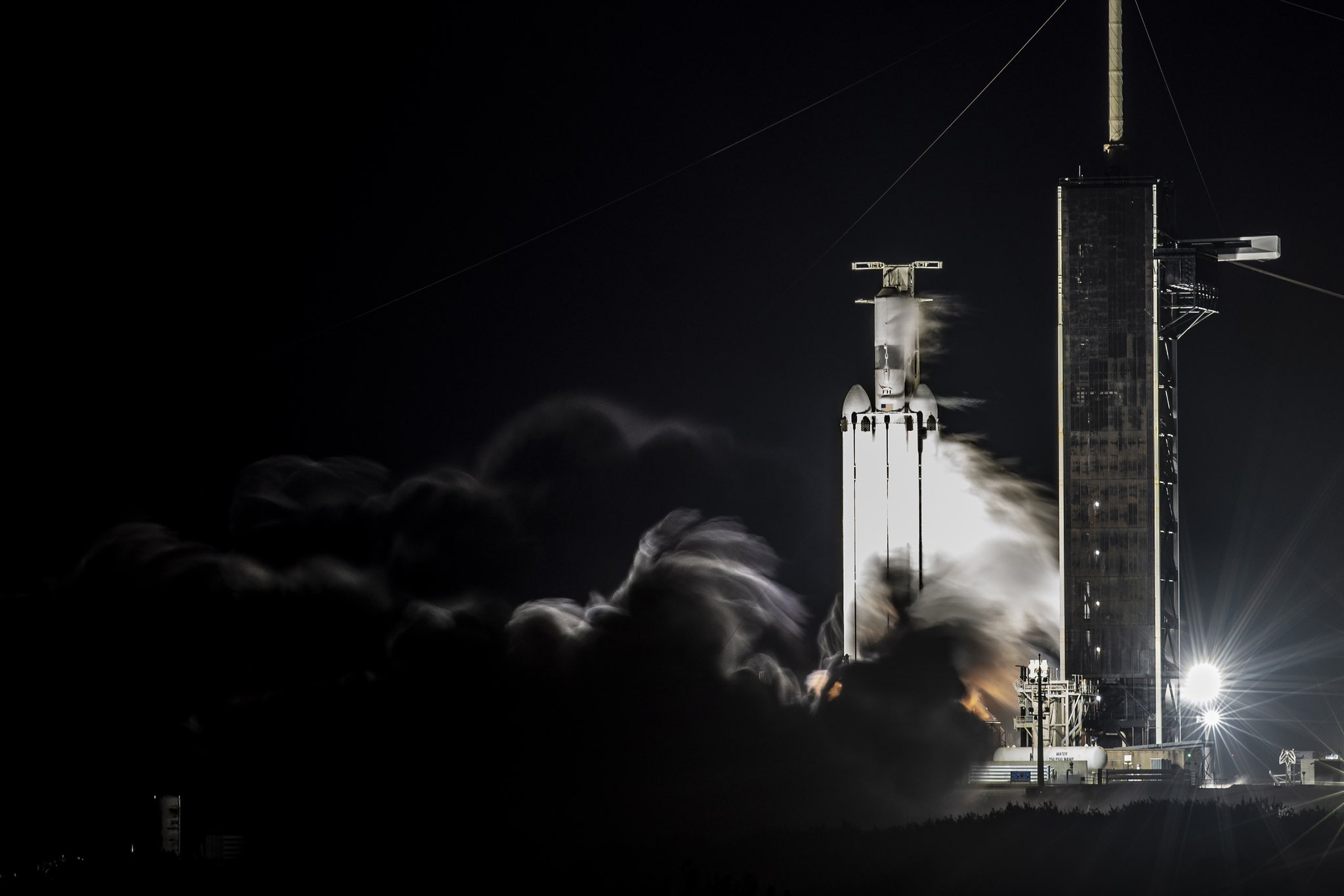
SpaceX's huge Falcon Heavy rocket just breathed fire for the first time in more than three years.
The Falcon Heavy aced a "static fire" test on Pad 39A at NASA's Kennedy Space Center in Florida, SpaceX announced via Twitter on Thursday evening (Oct. 27).
Static fires, in which a rocket's first-stage engines are briefly ignited while the vehicle remains anchored to the ground, are a common prelaunch trial. The completion of the milestone keeps the Heavy on track to launch the USSF-44 mission for the U.S. Space Force on Tuesday (Nov. 1), SpaceX said in Thursday's tweet.
Related: SpaceX gearing up for 1st Falcon Heavy launch since 2019 (photo)
Static fire of Falcon Heavy complete; targeting Tuesday, November 1 for launch of the USSF-44 mission from Launch Complex 39A in FloridaOctober 28, 2022
That post didn't identify a target launch time on Tuesday, but multiple sources have pegged 9:40 a.m. EDT (1340 GMT) as T-0.
A Tuesday target is a slight slip for USSF-44, which had been eyeing a "no earlier than" date of Oct. 31.
USSF-44 will be the fourth launch overall for the Falcon Heavy and its first since June 2019. The huge rocket will carry two satellites aloft for the Space Force, which has not revealed much about the payloads or their purposes.
Get the Space.com Newsletter
Breaking space news, the latest updates on rocket launches, skywatching events and more!
"This launch culminates years of effort by a dedicated team comprised of mission-focused people from across the U.S. Space Force and SpaceX," Brig. Gen. Stephen Purdy, the Space Force's program executive officer for assured access to space, said in an emailed statement on Thursday.
"The Falcon Heavy is an important element of our overall lift capability, and we're very excited to be ready for launch," he added.
Thursday was a busy day for SpaceX. In addition to the Falcon Heavy static fire, the company launched 53 of its Starlink internet satellites to orbit using one of its workhorse Falcon 9 rockets.
The Starlink flight, which also featured a landing of the Falcon 9's first stage on a ship at sea, took off from Vandenberg Space Force Base in California. It was SpaceX's 49th orbital mission of 2022.
Mike Wall is the author of "Out There" (Grand Central Publishing, 2018; illustrated by Karl Tate), a book about the search for alien life. Follow him on Twitter @michaeldwall. Follow us on Twitter @Spacedotcom or on Facebook.
Join our Space Forums to keep talking space on the latest missions, night sky and more! And if you have a news tip, correction or comment, let us know at: community@space.com.

Michael Wall is a Senior Space Writer with Space.com and joined the team in 2010. He primarily covers exoplanets, spaceflight and military space, but has been known to dabble in the space art beat. His book about the search for alien life, "Out There," was published on Nov. 13, 2018. Before becoming a science writer, Michael worked as a herpetologist and wildlife biologist. He has a Ph.D. in evolutionary biology from the University of Sydney, Australia, a bachelor's degree from the University of Arizona, and a graduate certificate in science writing from the University of California, Santa Cruz. To find out what his latest project is, you can follow Michael on Twitter.









